- Home
- Alison Weir
A Dangerous Inheritance
A Dangerous Inheritance Read online
Contents
Epigraph
Family Trees
Part One: Acts of Usurpation
Part Two: Innocent Blood
Part Three: Knots of Secret Might
Part Four: Greedy Death
Afterward …
Author’s Note
About the Author
A Dangerous Inheritance is a work of historical fiction. Apart from the well-known actual people, events, and locales that figure in the narrative, all names, characters, places, and incidents are the products of the author’s imagination or are used fictitiously. Any resemblance to current events or locales, or to living persons, is entirely coincidental.
Copyright © 2012 by Alison Weir
All rights reserved.
Published in the United States by Ballantine Books, an imprint of The Random House Publishing Group, a division of Random House, Inc., New York.
Originally published by Hutchinson, a division of Random House Group Limited, London.
BALLANTINE and colophon are registered trademarks of Random House, Inc.
LIBRARY OF CONGRESS CATALOGING-IN-PUBLICATION DATA
Weir, Alison.
A dangerous inheritance: a novel of Tudor rivals and the secret of the Tower / Alison Weir.
p. cm.
eISBN: 978-0-345-53594-8
1. Tower of London (London, England)—Fiction. 2. Political prisoners—Fiction. 3. Great Britain—Court and courtiers—Fiction. I. Title.
PR6123.E36D36 2012
823′.92—dc23 2012027867
www.ballantinebooks.com
Title-page image: © iStockphoto
Jacket design: Victoria Allen
Jacket photograph: Jeff Cottenden
v3.1
As circles five by art compressed show but one ring to sight,
So trust uniteth faithful minds, with knot of secret might,
Whose force to break (but greedy Death) no wight possesseth power,
As time and sequels well shall prove.
My ring can say no more.
—Lines engraved on
Katherine Grey’s wedding ring
Love is a torment of the mind, A tempest everlasting …
—Samuel Daniel,
“Hymen’s Triumph”
Love is blind.
—William Shakespeare,
The Two Gentlemen of Verona
The Royal House of Tudor
The Royal Houses of Lancaster and York
The Herbert Family
The Seymour Family
1568
I can never forget the day they brought me the news that my sister’s head had been cut off. I was not yet thirteen, too young fully to understand why she had to die, but old enough to imagine the horrific scene at the end. They said she had committed treason, the foulest of all crimes, but it didn’t make any sense to me, for Jane had only done what she was forced to do. And by that reasoning, I too had been an innocent traitor, just as she was.
We had none of us girls been born to inherit a crown, and yet it has overshadowed us all our lives—and blighted them. I thought once that it would be a wonderful thing to be a queen, to wield power and wear the coveted diadem—but I know differently now. Tangling with princes rarely brought anyone anything but ill-fortune and grief. I have learned that lesson too, in the hardest of ways. I am no longer the innocent, placid child who struggled with shyness and lessons, and was happiest running free in the spacious wilds of Charnwood Forest or playing with my dogs, my birds, and my monkeys.
If, in the future, there is to be any remnant of that kind of happiness for me in this world, it remains in the gift of Almighty God alone, for I can hope for little from my earthly sovereign.
In the meantime, I must languish here, in this fine house that is really my prison, having little to distract me from my trials but the routines of everyday life and the stilted exchange of pleasantries with my unwilling hosts. The only pleasures—if that is the right word—that are left to me are writing daily in this journal that I began so many years ago, and gazing yearningly from my window across the flat green parkland and skeletal trees to the forbidden distance, beyond which lives the man I love more than life itself.
KATHERINE
May 25, 1553; Durham House, London
Today is our wedding day. My sister Jane and I are to be married; all has been arranged so that the one ceremony will serve for both the daughters of my lord the Duke of Suffolk and my lady the duchess. It has come upon us so quickly that I have scarce had time to catch my breath, and am somewhat stunned to find myself standing in this royally appointed bedchamber being decked out in my bridal robes.
Below the latticed windows the River Thames, busy with craft and the shouts of boatmen, glides swiftly past London toward the distant sea. There is the usual whiff of fish, mud, and rotting stuff in the warm air, but the light breeze that stirs the heavy damask curtains and caresses my skin is pleasant, and faintly redolent of the flowers in the formal gardens that cluster below around Durham House.
We stand like statues as our nurse, Mrs. Ellen, and our tirewoman, Bridget, fuss around us, pins in their mouths, hands fiddling with points and laces, dressing us in such finery as I have never possessed, while our mother looks on, hawklike, screeching orders.
“Stand still, Jane! And try to look happy. His Majesty has been most generous in his provision for you, and in finding you such bridegrooms. You would not wish word to get back to him that you are ungrateful, I am sure.”
Jane looks mutinous as the heavy gown of gold and silver brocade is lowered over her head.
“He knows that I did not want this marriage,” she says defiantly. “And it is my lord of Northumberland whom I have to thank for it. King Edward might rule England, but my lord rules the King.”
My mother would like to strike her, I am sure, but even she would not send a daughter to her wedding with bruises on her flesh. Instead she contents herself with tugging Jane’s wedding gown none too gently into place over her kirtle, and arranging the heavy skirts and train, which are exquisitely embroidered with diamonds and pearls.
“You will keep your opinions to yourself, my little madam, and remember your duty to the King, to me and your father, and to the Duke of Northumberland, who is to become your father-in-law this day. Rest assured, you would not be getting wed if the King did not wish it. Now, let me look at you.”
Jane stands awkwardly as our mother inspects her. She told me last night, not for the first time, that she despises outward finery; as a virtuous Protestant maiden, she insists on wearing sober, modest garments of black and white, which infuriates our mother, who is given to lavish attire. I can see that Jane is uncomfortable in more ways than one in her rich gold and silver brocade, with its low square neckline that reveals the slight swell of her small breasts.
I would give much to go forth to my wedding in such a dress, but I am the younger sister, and therefore not as important. Never mind that, unlike the spirited Jane, I am obedient, biddable, and—so my mother says—the beauty of the family, and (which she never says) clearly her favorite, I must always come second. I am second now, my marriage less important than Jane’s, my gown of silver tissue banded with crimson velvet and pearls less costly; but as I catch sight of myself in the mirror, with my long strawberry-gold hair falling in glossy ripples down my back, my cheeks pinkly flushed, my blue eyes shining, and the tight cut of the pointed bodice outlining my slender figure, I know that I do not need more lavish finery to compete with my sister.
We are close, as sisters should be, but there has always been a healthy rivalry between us. Jane, my elder by four years, is the naughty, intransigent child, and I am the meek and dutiful one. Not for me the nips, slaps, and pinc
hes that Jane frequently has to endure for this or that supposed misdemeanor, or for not doing what she was told as perfectly as God made the world. She could never please our parents. Everything she did or said laid her open to their criticism. Poor Jane; I have often seen her run weeping to our beloved tutor, gentle Master Aylmer, for some respite from their harshness. Yet for me, the less clever but prettier daughter, there have been but mild reproofs and even occasional praise.
I was a quiet child, happy to bask in my brilliant sister’s light, and it suited me to behave well, because I was timid and shy, and wanted as easy a life as possible. If doing so earned me the kindness of my fearsome mother, and spared me the rigor she showed to my unsatisfactory sister, then I was content. But as I grew older, it began to dawn on me that our mother was unnecessarily unkind to Jane, and did not love her, and I grew more protective toward my older sibling.
So I am sorry to see her looking so miserable, standing there in her unwanted finery, a frown on her plain, freckled face, as Mrs. Ellen combs her long red hair. Mrs. Ellen is dear and kind; she loves Jane much more than our mother does, and has stood up for her on many occasions, but my mother rarely takes any notice of anything that Mrs. Ellen says. She is a servant, beneath her notice.
Jane should be rejoicing that being married will enable her to escape, for she should be mistress of her own household very soon, although matters have proceeded so fast that nothing has been said of that yet. But she says she is merely changing one form of bondage for another. To me, it seems a wondrous thing to be married—and I hope she will find it so, although I fear she is resolved not to. I shall miss her, my dearest sister; what will her life be like without me there to comfort her?
Jane was supposed to be a boy, the son and heir who would inherit our parents’ titles and estates, and their ambitions. For royal blood runs in my mother’s veins, and she and my father have ever had the crown within their sights; indeed, my mother is next in line to the throne after the King’s half sisters, the Lady Mary and the Lady Elizabeth, although—with them likely being in good health and to marry—the prospect of her ever succeeding is remote. It took me a long time to understand that my mother’s unkindness toward Jane was born of disappointment in her being the wrong sex. After that, nothing she ever did was right.
Once, there had been an ambitious plan to marry her to King Edward and make her Queen. I know little of how it was to work out—only that not very long ago our parents suddenly abandoned the idea and agreed to these new marriages.
Poor Jane. She did not want to marry Lord Guilford Dudley; in fact, she had railed bitterly against it. All in vain. Our furious mother beat her into submission, shrieking that the marriage was highly advantageous for our family, while our father looked on, steely-eyed. “How could an alliance with the Dudleys ever be advantageous?” Jane cried, cowering under the blows.
“You will find out!” spat my lady. “Just do—as—you—are—told!” Each word was accompanied by a snap of the whip.
It was different for me. Last month my lord and lady summoned me to the great chamber at our house at Sheen, where I found my mother seated by the hearth and my father standing with his back to the fire, his hunting dogs at his feet. They smiled at me as I rose from my curtsey and stood respectfully before them.
“Katherine, you will be pleased to know that your father has arranged a marriage for you,” my mother said, her sharp features wearing a benign expression as she fixed her gaze on her lord. Her deference to him is a sop to his vanity and the conventions, for it is no secret that he is quite content to be ruled by her, his royal wife, in all things.
The news was a complete surprise to me. At twelve, I had not expected to be wed for some years yet, and was rendered quite speechless, which my parents mercifully took for obedient consent.
“You are young, it is true, to be a wife,” my father said, “but you are of age, and this match pleases us well. Above all, it will be of great benefit to the realm.”
Benefit to the realm? What was he talking about? Surely I, unimportant little Lady Katherine Grey, had no place in the high affairs of the kingdom?
“Why, the child is struck dumb!” my mother laughed. “Are you so overcome by your good fortune, Katherine?”
“I thank you, sir, madam,” I stammered.
My mother turned to my father, crowing, “You see, Henry? I told you she would be more biddable by far than Jane.”
“I am relieved to see it,” he replied with feeling. He loathes disruption, and having lost patience with Jane for making so much trouble over her betrothal, he had been difficult to live with for days.
“Well, Katherine, I expect you are waiting to hear the name of the fortunate young man who is to be your husband,” he was saying.
“Yes, sir, I am.”
My father put his hand into his doublet and pulled out a small, delicate oval object rimmed in bright gold.
“Behold!” he said, and gave it to me. It was a miniature portrait of a young man wearing russet clothing; he had brown curls, merry eyes, and a pleasant, open face. The gold letters on the blue background proclaimed, in Latin, that he was in his sixteenth year.
I am innocent of life, yet old enough to have looked blushingly on a handsome youth with interest; and when I gazed upon the comely features of my future betrothed, something stirred within me, and I was suddenly suffused with happiness. I had been taught that my duty would be to love the husband chosen for me, but this was a face I could love with no thought of duty.
I looked up at my waiting parents and found my voice.
“Sir, madam, I could not have asked for a more handsome gentleman for a husband. Thank you, oh, thank you!”
They beamed at me.
“Don’t you want to know who he is?” my father chuckled.
“Yes, sir, please … Who is he?”
“Henry, Lord Herbert, son and heir to the Earl of Pembroke. The Herberts are an old and noble family. One day you will be my lady the Countess of Pembroke. It’s an excellent match.”
“It is indeed,” added my mother, “and I am gratified to see that you are suitably grateful. You’re a good girl, Katherine.”
“May I ask a question?” I ventured.
“You may,” said my father.
“Sir, I understand why you are pleased to be marrying me to Lord Herbert, for he is a fine gentleman and will make me a countess. But you said earlier that this match would be of great benefit to the realm. I do not understand.”
“This marriage pleases my lord of Northumberland, and binds us to his affinity. Pembroke is a great and influential nobleman, and an alliance with him is much to our advantage.”
“And I am certain that he sees it as being much to his advantage too, to be allied with our royal blood,” my mother added dryly. “Katherine, you may rest content that your marriage will please many people, including the King himself.”
“It is to take place as soon as possible,” my lord informed me. “We are planning a double wedding with Jane and Guilford. But first you must meet your bridegroom.”
It was arranged that my lord of Pembroke and his son should visit us in our new house, the former priory of the Charterhouse, at Sheen, which was granted to my father by the King earlier this year. Its splendid redbrick buildings and courts are dominated by a solid square tower with battlements, and it nestles close beside the River Thames amid the gentle wooded hills of Surrey.
When King Edward succeeded and England was proclaimed a Protestant kingdom, my parents ardently embraced the new faith. My father had profited well from King Harry’s break with Rome and the closure of the monasteries: he got not only Sheen, and before that the Minories in London, but also Bradgate in Charnwood Forest, where he built us a grand house on the ruins of an abbey.
My parents keep great state at Sheen, which is arrayed with the very best in tapestries, Turkish carpets, displays of gold and silver plate, and gilded furniture, such as would impress even the King himself. And on the day when th
e Herberts were due to arrive, my mother decreed that I should be nobly decked out too, just as Jane had been when my lord of Northumberland had brought his son Guilford on a similar occasion.
That had not gone well. Jane did not trouble to hide her aversion to Guilford, whom I thought a handsome but stupid youth. He too clearly had no inclination for the marriage. That was the first occasion on which I met John Dudley, Duke of Northumberland, the man who rules England as Lord President of the Council while my cousin King Edward is a minor, and I was overawed by the cold and arrogant manner of this great lord. His very bearing exudes power; and yet, young as I might be, I sensed that there lurked a ruthless spirit beneath the urbane courtier.
He is not liked. My father is much in Northumberland’s confidence, and active in the government of the kingdom, but I’ve heard my parents call the duke an upstart, a greedy and grasping knave, and scorn him as the son of an executed traitor—but only when they were not aware that I was listening. Since breaking the news of Jane’s betrothal, they have loudly praised his virtues as a husband and father, his statecraft, his courtesy, and his exploits in the tiltyard.
But outward appearances are not always what they seem, especially among great folk. The very attitude of my parents toward Northumberland has shown me that a man or woman may say fair words outwardly, yet utter something quite different in private. I suspect that my father might merely be feigning friendship with Northumberland while using him for his own ends, for sure it is that an alliance with the duke is the fastest way to advancement in this kingdom.
I instantly disliked the man. I was almost beneath his notice, thank goodness: he was too puffed up with his own importance even to acknowledge me beyond a courtesy bow, and he was plainly simmering with anger at Jane’s sullen reception of his son. My parents were all false gaiety and bonhomie, but later, when the guests had gone, they bared their teeth and snarled at my sister, who was sent to bed without supper for her discourtesy.

 Richard III and the Princes in the Tower
Richard III and the Princes in the Tower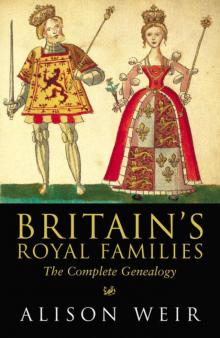 Britain's Royal Families: The Complete Genealogy
Britain's Royal Families: The Complete Genealogy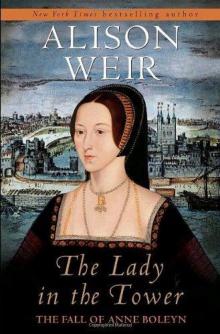 The Lady in the Tower: The Fall of Anne Boleyn
The Lady in the Tower: The Fall of Anne Boleyn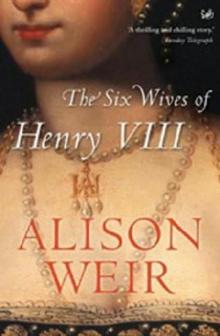 Six Wives of Henry VIII
Six Wives of Henry VIII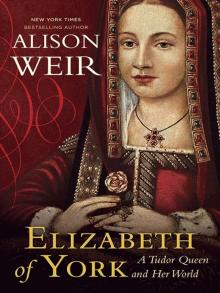 Elizabeth of York: A Tudor Queen and Her World
Elizabeth of York: A Tudor Queen and Her World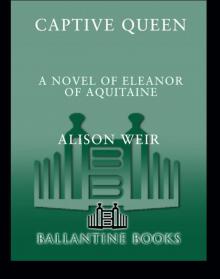 Captive Queen
Captive Queen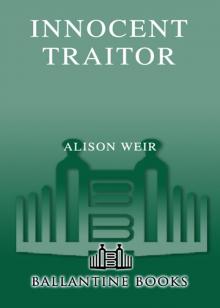 Innocent Traitor
Innocent Traitor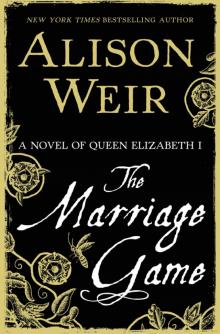 The Marriage Game
The Marriage Game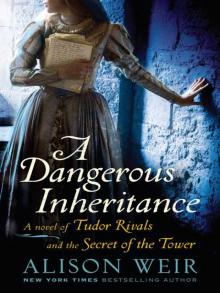 A Dangerous Inheritance
A Dangerous Inheritance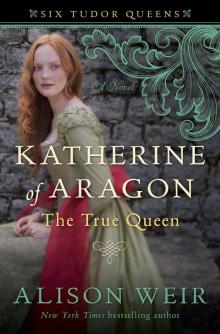 Katherine of Aragón: The True Queen
Katherine of Aragón: The True Queen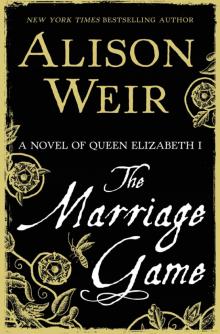 The Marriage Game: A Novel of Queen Elizabeth I
The Marriage Game: A Novel of Queen Elizabeth I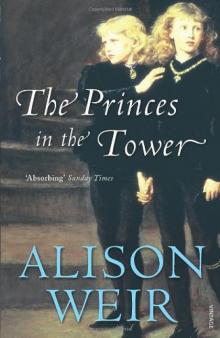 Princes in the Tower
Princes in the Tower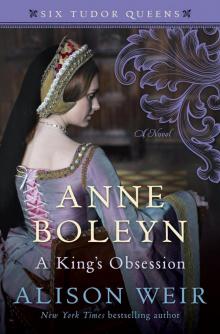 Anne Boleyn: A King's Obsession
Anne Boleyn: A King's Obsession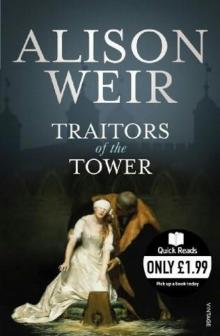 Traitors of the Tower
Traitors of the Tower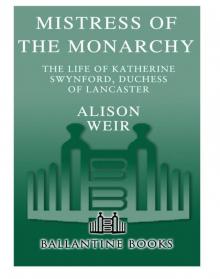 Mistress of the Monarchy: The Life of Katherine Swynford, Duchess of Lancaster
Mistress of the Monarchy: The Life of Katherine Swynford, Duchess of Lancaster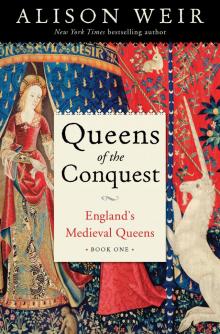 Queens of the Conquest: England’s Medieval Queens
Queens of the Conquest: England’s Medieval Queens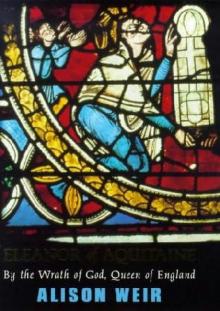 Eleanor of Aquitaine: A Life
Eleanor of Aquitaine: A Life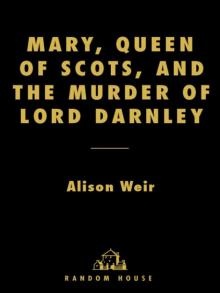 Mary, Queen of Scots, and the Murder of Lord Darnley
Mary, Queen of Scots, and the Murder of Lord Darnley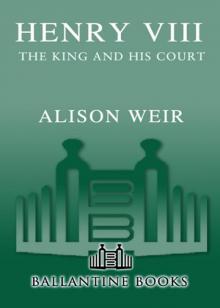 Henry VIII: The King and His Court
Henry VIII: The King and His Court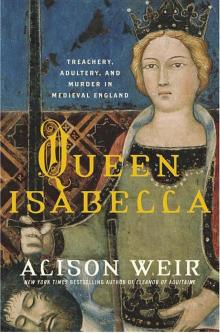 Queen Isabella: Treachery, Adultery, and Murder in Medieval England
Queen Isabella: Treachery, Adultery, and Murder in Medieval England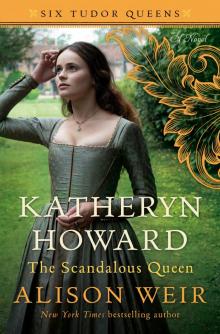 Katheryn Howard, the Scandalous Queen
Katheryn Howard, the Scandalous Queen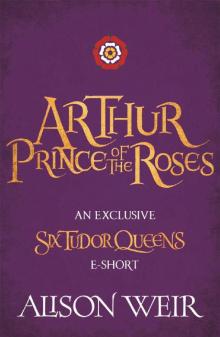 Arthur- Prince of the Roses
Arthur- Prince of the Roses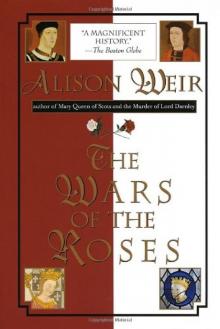 The Wars of the Roses
The Wars of the Roses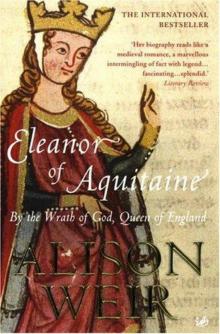 Eleanor of Aquitaine: By the Wrath of God, Queen of England
Eleanor of Aquitaine: By the Wrath of God, Queen of England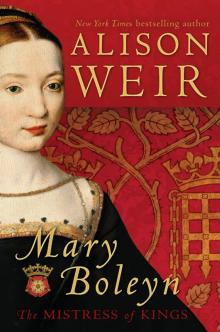 Mary Boleyn: The Great and Infamous Whore
Mary Boleyn: The Great and Infamous Whore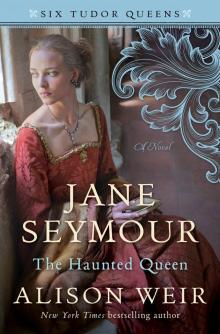 Jane Seymour: The Haunted Queen
Jane Seymour: The Haunted Queen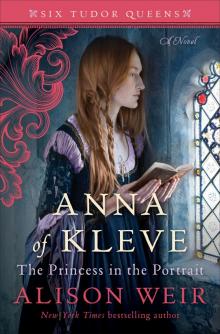 Anna of Kleve, the Princess in the Portrait
Anna of Kleve, the Princess in the Portrait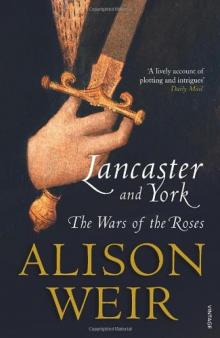 Lancaster and York: The Wars of the Roses
Lancaster and York: The Wars of the Roses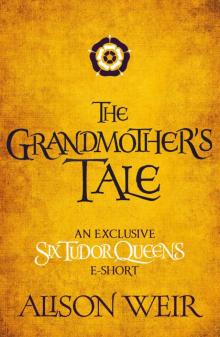 The Grandmother's Tale
The Grandmother's Tale The Princess of Scotland (Six Tudor Queens #5.5)
The Princess of Scotland (Six Tudor Queens #5.5)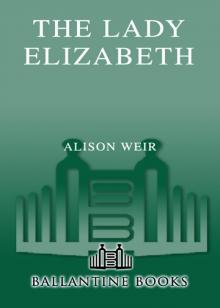 The Lady Elizabeth
The Lady Elizabeth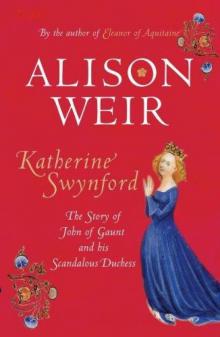 Katherine Swynford: The Story of John of Gaunt and His Scandalous Duchess
Katherine Swynford: The Story of John of Gaunt and His Scandalous Duchess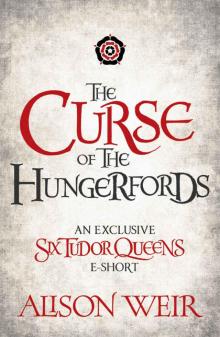 The Curse of the Hungerfords
The Curse of the Hungerfords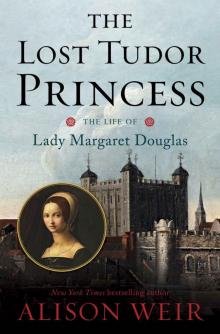 The Lost Tudor Princess: The Life of Lady Margaret Douglas
The Lost Tudor Princess: The Life of Lady Margaret Douglas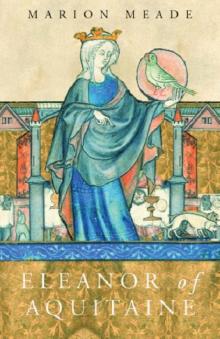 Eleanor of Aquitaine
Eleanor of Aquitaine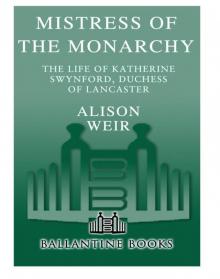 Mistress of the Monarchy
Mistress of the Monarchy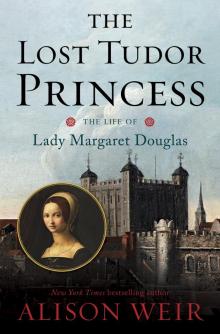 The Lost Tudor Princess
The Lost Tudor Princess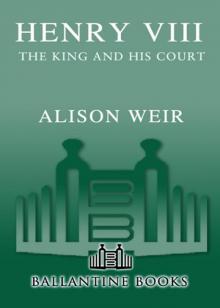 Henry VIII
Henry VIII Anne Boleyn, a King's Obsession
Anne Boleyn, a King's Obsession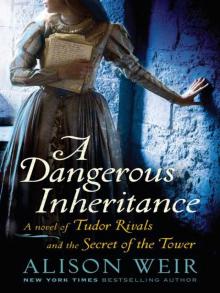 A Dangerous Inheritance: A Novel of Tudor Rivals and the Secret of the Tower
A Dangerous Inheritance: A Novel of Tudor Rivals and the Secret of the Tower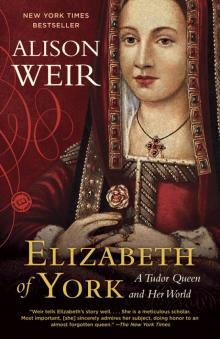 Elizabeth of York
Elizabeth of York Katherine of Aragon, the True Queen
Katherine of Aragon, the True Queen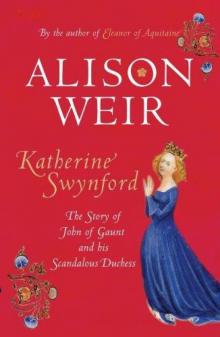 Katherine Swynford
Katherine Swynford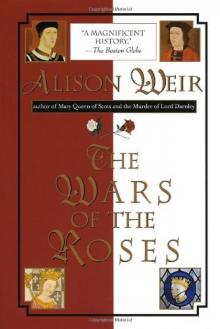 Wars of the Roses
Wars of the Roses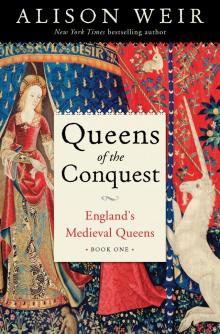 Queens of the Conquest
Queens of the Conquest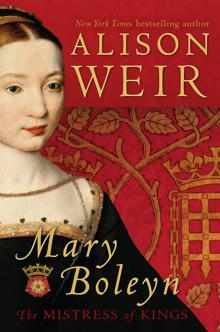 Mary Boleyn
Mary Boleyn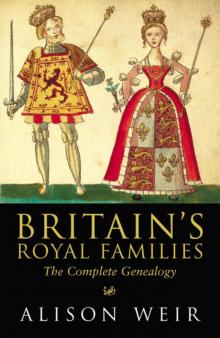 Britain's Royal Families
Britain's Royal Families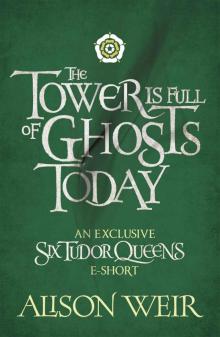 The Tower Is Full of Ghosts Today
The Tower Is Full of Ghosts Today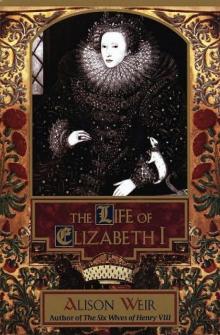 Life of Elizabeth I
Life of Elizabeth I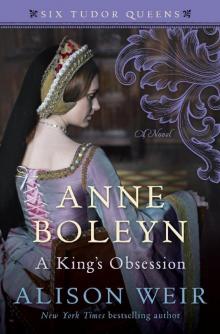 Anne Boleyn A King's Obssession
Anne Boleyn A King's Obssession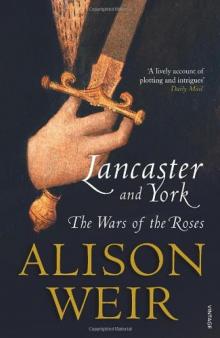 Lancaster and York
Lancaster and York Jane Seymour, the Haunted Queen
Jane Seymour, the Haunted Queen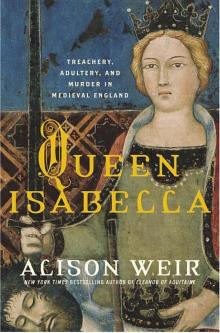 Queen Isabella
Queen Isabella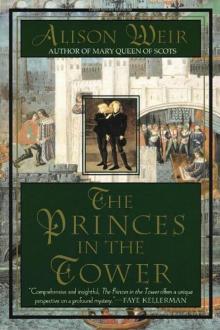 The princes in the tower
The princes in the tower